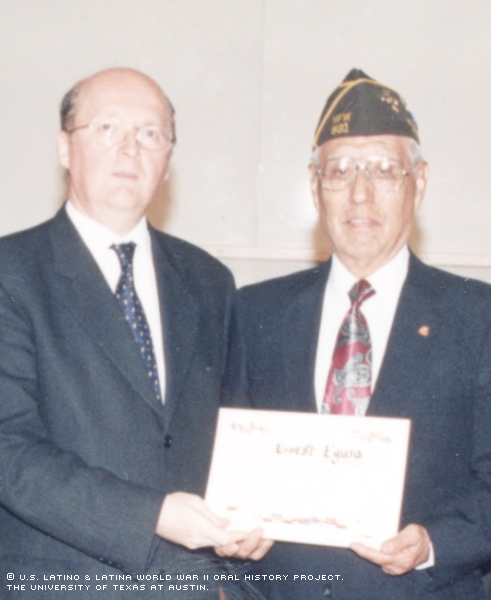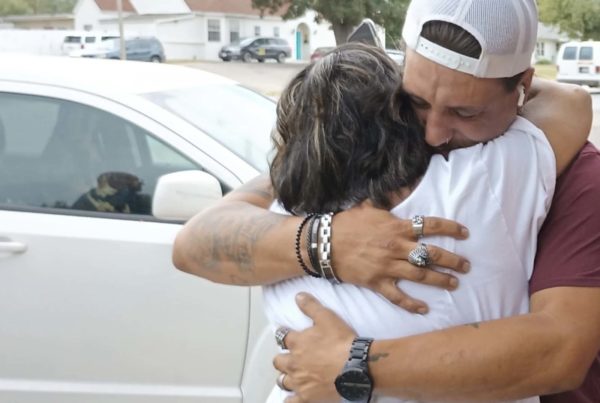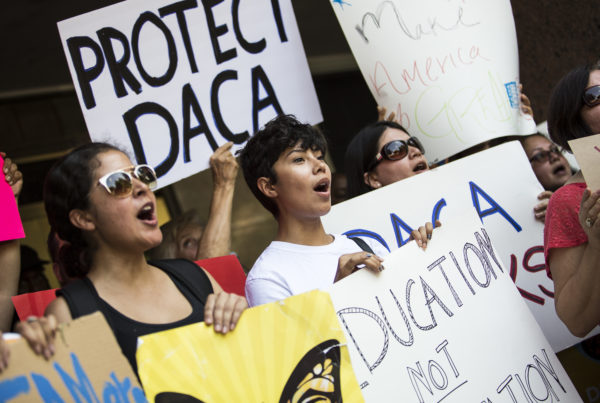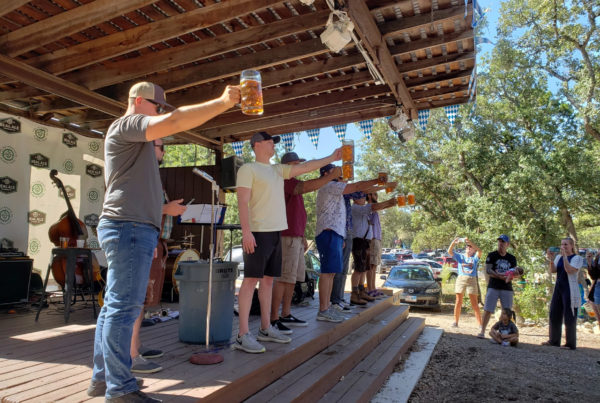This story is part of a Hispanic Heritage Month collaboration with Voces Oral History Center based at UT-Austin’s Moody School of Communication.
In the 1940s, Latinos did not hold positions in Houston’s police and fire departments.
A World War II veteran named Ernest Eguia, along with hundreds of other Mexican-Americans, helped change that.
Eguia was born on Nov. 7, 1919, in Lockhart. His parents brought him to Houston as a toddler. He dropped out of high school and later got his GED.
But first, like millions of men of his generation, Eguia was drafted into the Army during World War II. He served in the European theater as a forward observer for the artillery and stayed in Germany months after the war ended serving with occupational forces. Then, he came back home.
Just days after arriving in Houston, Eguia had a run-in with police. He was in a car with his friends when the police unit swerved in front of them. Eguia yelled at the police, they were pulled over, and he was taken to the station.
“The police officer that brought me in was telling him that I was one of the guys that was in the car and that I was one of the smart ones. The guy says ‘smart what?’ ‘He’s a smart Mexican.’ And I said, ‘well, I think I see that things haven’t changed since I left here four years ago,’” Eguia said.
Eguia was indeed “a smart Mexican.” Though he had left school early, he was not afraid speaking up about discrimination. Then, a friend persuaded him to join the League of United Latin American Citizens, or LULAC. There had been a headline-grabbing story about how a Mexican-American Medal of Honor recipient had been denied service in a nearby town. The man, Macario Garcia, was wearing his uniform and protested. When a fight broke out, Garcia was arrested. His case galvanized Mexican-Americans across the country.
Eguia recognized there was work to be done in his backyard.
“We found out that there wasn’t a single, not one single police officer in Houston that was Hispanic or with a Hispanic name. Nobody in the fire department with a Hispanic name. Nobody working in City Hall with a Hispanic name,” Eguia said.
In 1948, LULAC called for a meeting with city leadership. 800 people showed up prepared to defend the integration of Latinos into Houston’s fire and police departments.
City leaders said the group had to meet several requirements. They must have been six feet tall, have a high school diploma and at least two years of college.
Lulacers who met those requirements stood up. The show of those Mexican-Americans who fit the basic criteria was undeniable.
In the coming months, there were Latino police officers; Latino firemen; Latina secretaries at City Hall, including Eguia’s younger brother, Leon, who became one of Houston’s very first Latino firefighters.
Ernest Eguia’s work against discrimination did not stop there. Working with LULAC, he continued fighting for Houston’s Latino community. He traveled to surrounding areas, advocating for integration and equal opportunities. Voting rights were particularly important.
“People had to have a poll tax to vote. We fought against it through LULAC. And we did away with it so that people could vote and have the freedom to express themselves at polls,” Eguia said. “I feel that we have done some good. I, personally, was just maybe a pebble. It took the other 300 of us together to do it.”
Eguia died at the age of 95 on May 3, 2015. He was a member of LULAC for 67 years.

















